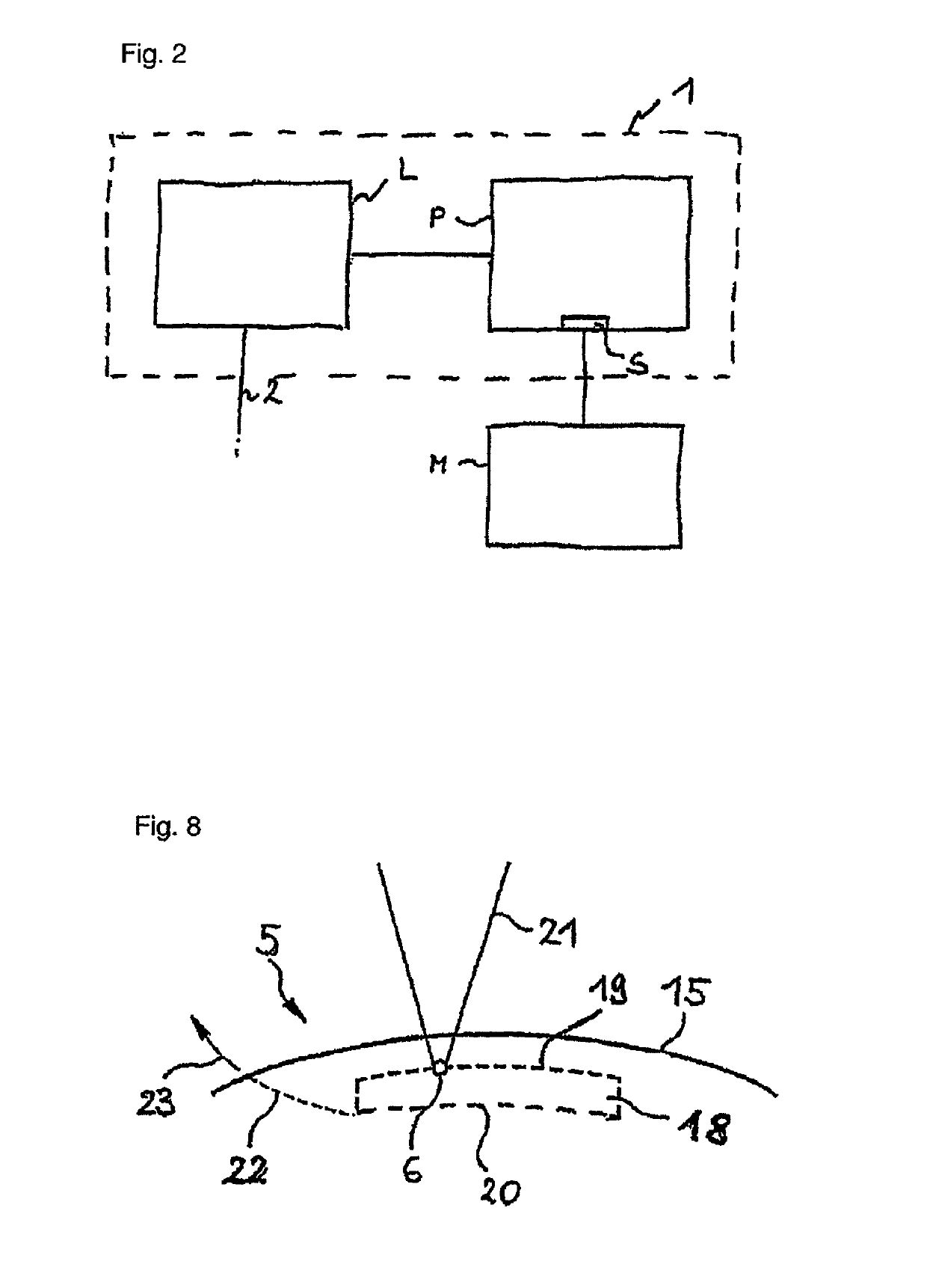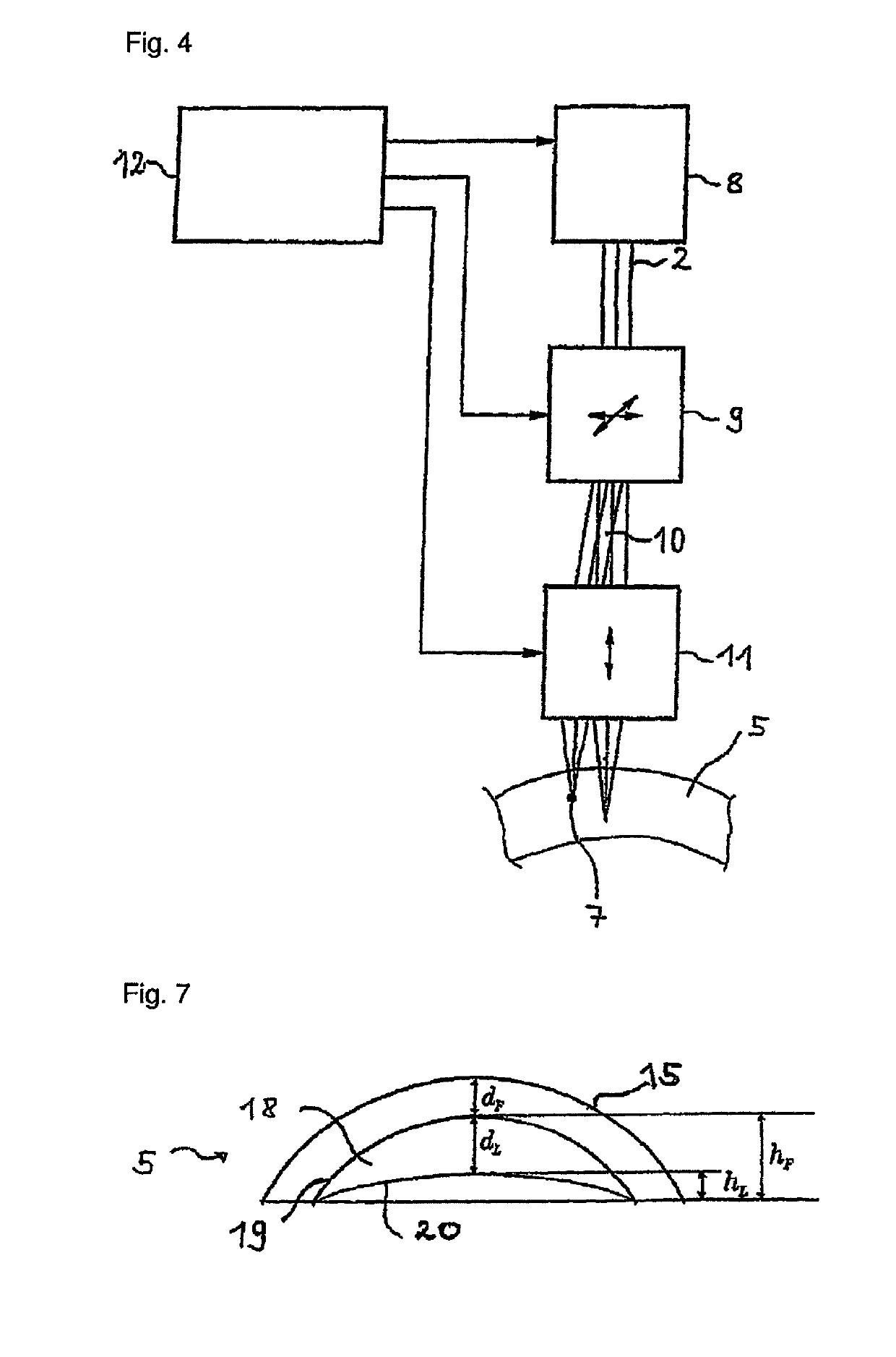Treatment device for the surgical correction of defective vision of an eye, method for producing control data therefor, and method for the surgical correction of defective vision of an eye
a treatment device and eye technology, applied in the field of eye surgery, laser surgery, etc., can solve the problems of slight disadvantage of the patient treated, and achieve the effect of good results and tolerance in the patien
- Summary
- Abstract
- Description
- Claims
- Application Information
AI Technical Summary
Benefits of technology
Problems solved by technology
Method used
Image
Examples
Embodiment Construction
[0044]FIG. 1 shows a treatment apparatus 1 for an eye-surgery method which is similar to that described in EP 1 159 986 A2 and in U.S. Pat. No. 5,549,632. By means of a treatment laser radiation 2 the treatment apparatus 1 brings about a correction of defective vision in an eye 3 of a patient 4. Defective vision can include hyperopia, myopia, presbyopia, astigmatism, mixed astigmatism (astigmatism in which there is hyperopia in one direction and myopia in a direction lying at right angles thereto), aspherical errors and higher-order aberrations. In the embodiment described, the treatment laser radiation 2 is conveyed as a pulsed laser beam focussed into the eye 3. The pulse duration in this case is, e.g., in the femtosecond range, and the laser radiation 2 acts by means of non-linear optical effects in the cornea. The laser beam has e.g. 50 to 800 fs short laser pulses (preferably 100-400 fs) with a pulse repetition frequency of between 10 and 500 kHz. In the embodiment example desc...
PUM
 Login to View More
Login to View More Abstract
Description
Claims
Application Information
 Login to View More
Login to View More - R&D
- Intellectual Property
- Life Sciences
- Materials
- Tech Scout
- Unparalleled Data Quality
- Higher Quality Content
- 60% Fewer Hallucinations
Browse by: Latest US Patents, China's latest patents, Technical Efficacy Thesaurus, Application Domain, Technology Topic, Popular Technical Reports.
© 2025 PatSnap. All rights reserved.Legal|Privacy policy|Modern Slavery Act Transparency Statement|Sitemap|About US| Contact US: help@patsnap.com



